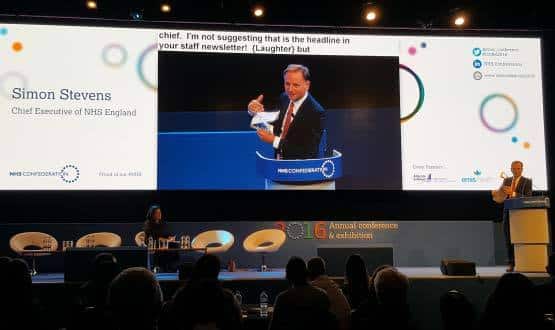One more week to apply for med tech tariff scheme
- 9 August 2016

Suppliers that want to secure a slot on the new innovation and technology tariff being set up for the NHS have one week to submit their applications.
In a statement, NHS England said while hundreds of applications had been received, the initial deadline had been extended by two weeks until next Tuesday (16 August) so “the best, new devices and apps get to NHS patients”.
Matthew Swindells, national director for commissioning, operations and information, said while the NHS had been great at developing new health technology it had “stumbled” in quickly getting these innovations into the hands of patients and clinicians.
“The new national funding route will help cut the hassle experienced by clinicians and innovators in getting uptake and spread across the NHS. At a time when the NHS is under pressure, we want to make it as easy as possible to fast track innovations that enhance patient outcomes and improve efficiency in NHS care.”
NHS England chief executive Simon Stevens first announced the new innovation and technology tariffs at the NHS Confederation’s annual conference in June, claiming they would make it easier for NHS organisations to adopt innovation technology.
“Clinicians will be up for this, it helps patients, and it is a much more positive way to talk about modernising services than constantly just taking money out of them by conventional means,” he told the event.
In practice, the tech tariff is a promise from the government to reimburse an NHS organisation to buy a certain innovative technology at a given price from a pre-agreed national tariff list.
In theory, this lessens the need for trusts to negotiate contracts and seek additional funding from clinical commissioning groups or other sources. NHS England also argues the scale of negotiating tariffs on behalf the country’s entire NHS will give it more leverage to extract a better price.
For suppliers that can make it work, the tariff should give streamline access with secure funding into the NHS at scale. The NHS Innovation Accelerator has been chosen to oversee the selection of the recipients of these new tech tariffs.
To be considered for inclusion, the supplier must be offering a “mature innovations with a validated evidence base” that will “delivers significantly increased quality and improved efficiency”. For now, the tariff is not open to primary sector innovations.
However, while innovations must be “mature” they cannot be already widely used in the NHS and suppliers and trusts hoping to fund a big electronic patient record deployment will be disappointed.
Guidelines for the tariff state: “Innovation that involves capital investment or set-up costs are unlikely to be applicable for a national tariff.” A simple payment model, such as per patient, is also preferred.
The new tariff feeds into ‘Five Year Forward View’, published in October 2014, which is aimed at closing a £30 billion gap between demand and funding by 2020-21. One of the main pillars of this programme is to encourage the NHS to adopt technology that can transform care delivery, improve health and cut service demand.
The drive is set against an increasingly grim financial backdrop in the NHS. While Department of Health accounts released last month indicating the NHS as a whole managed to break even, the acute sector was £2.4 billion in the red for the last financial year.
Last month, five trusts were also put into a new ‘intervention’ special measures regime and a further 13 could follow, amid concerns about their financial health. This is part of a wider financial “reset”, with the Department of Health, NHS England and NHS Improvement indicating they will intervene more forcefully in trusts that are not keeping their finances in check.
All trusts, meanwhile, are expected to set ‘control targets’ to make savings while delivering on key targets. Tariff applicants should hear by 14 September whether they have been shortlisted for inclusion.




